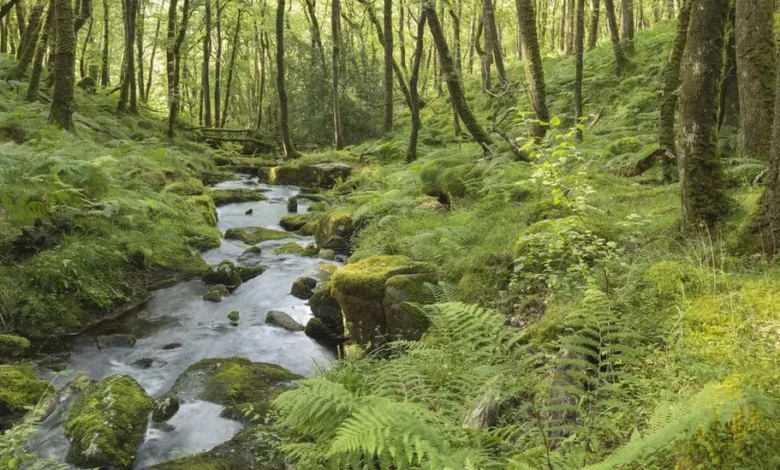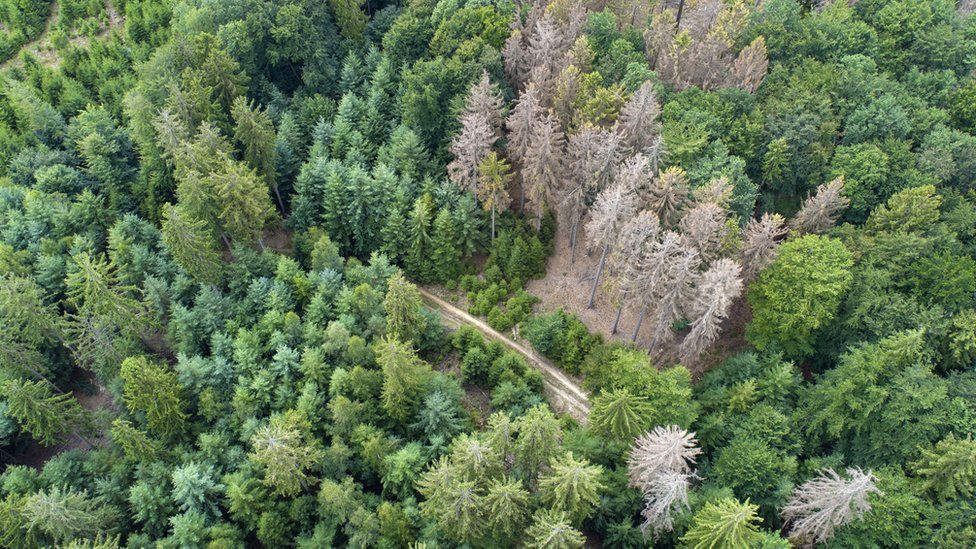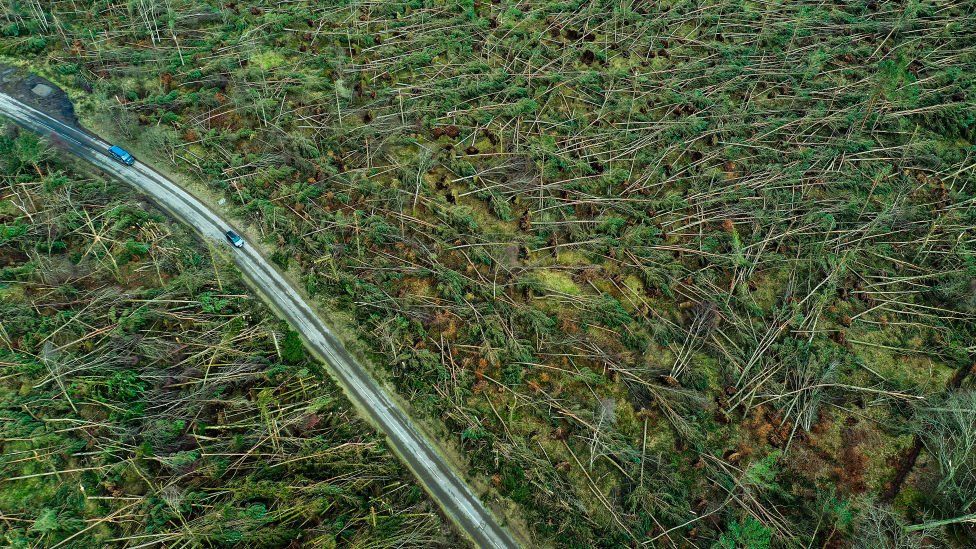UK forests face ‘catastrophic ecosystem collapse’

Silent forests devoid of life are a possibility within a generation in our already deforested nation, according to a panel of British experts.
“Ecosystem collapse”, where trees suddenly fade and die, could happen within 50 years, they warn.
But the 42 experts said if we act now we can avert the catastrophe.
The large-scale loss of forests hit by “wind, fire, pests and disease” has already happened in continental Europe and North America.
“A collapsed forest would be heart-breaking, devoid of its essential life and all the joy and benefits it gives to humanity,” said Dr Eleanor Tew of Forestry England and Cambridge University.
But she said we have time to make a difference and we know what to do to make our forests more resilient “so they can continue to thrive for future generations”.

The UK is one of the least forested countries in Europe.
Its remaining woodlands face many challenges including climate change, biodiversity loss, invasive species, damage from deer and grey squirrels, and a big increase in the number of tree pests and pathogens.
There is also a skills shortage in the forestry sector, jeopardising the ability to deliver government tree planting targets.
Solutions include planting forests made-up of a range of different species that are better for wildlife and more resilient to pressures such as flood, drought and disease.

Other “over-looked and emerging issues” identified in the first “horizon-scanning” exercise for UK forests include:
- Competition with human society for water
- New pests and pathogens, particularly viruses
- Extreme weather affecting forest management.
Forestry England, a part of the Forestry Commission, collaborated with the University of Cambridge on the study, which was published in the journal, Forestry.











